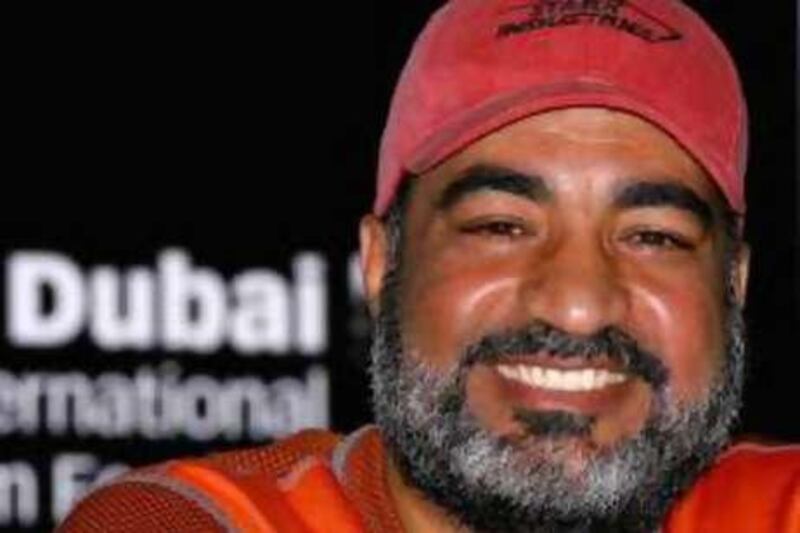Arab-American professionals in Hollywood have offered advice for Imagenation Abu Dhabi, the emirate's new film financing company: do not just make money, make social change. Sayed Badreya, has played the Arab bad guy in Hollywood films including Three Kings, Soul Plane, The Insider, T for Terrorist and The Path to 9/11. This year Badreya's tough-guy roles have included Saddam Hussein in W, and terrorists in Don't Mess With the Zohan and Iron Man. Although the Egyptian-born Hollywood veteran does not begrudge the work, saying the roles are often fun to play, he hoped Hollywood would start telling a different story about Arabs, and Arab-Americans. Imagenation, which has planned to invest US$1 billion (Dh3.67bn) in new Hollywood films, could have a positive effect on the industry, he said. Imagenation is owned by the Abu Dhabi Media Company, which also publishes The National. "I've been looking for something like this for the past 25 years," Badreya said. "It's important for someone to take the lead and finance, because no one is going to tell your story until you pay for it." But Badreya urged Imagenation not to feel pressured into producing conventional stories about Arabs just for the sake of it. "Here's the thing I beg them not to do - I beg them not to do 'nicey-nicey' movies, because that would be boring," he said. Imagenation has plans to produce up to eight films a year for the next five years. It has already announced several partnerships and its first film to reach cinemas would be Shorts, a family-friendly movie produced by Warner Bros and directed by Robert Rodriguez. The company has also been working with National Geographic and Participant Media, which has produced The Kite Runner, and the Oscar-winning films An Inconvenient Truth and Syriana. This week executives from Abu Dhabi-based Imagenation will travel to Los Angeles to search for directing and screenwriting talent and forge partnerships with Hollywood bankers, lawyers and agents. James Berk, the chief executive officer of Participant Media, said his company's mantra was to create, develop and help produce stories that inspire and compel social change. Mr Berk said working with Imagenation would get his come any closer to its goals, and called it "a partner who has the same mission". "Our company is really about making the world a better place, and what was exciting about the partnership with Abu Dhabi Media Company, and Imagenation in particular, is it is allowing us to actually continue to develop stories at a more rapid rate," he said. The deal has been part of Participant's plan to expand out of domestic operations and into Europe and into the Middle East. "We have no parameters in terms of where our relationship is going to take us in terms of stories," Mr Berk said. "If the stories are emanating from the Middle East or about the Middle East, that's wonderful." Participant Media is part of a recent rend towards films that challenge the one-dimensional way Hollywood has cast Arabs. Along with the Arab-themed The Kite Runner and Syriana, it produced The Visitor, which was the highest-grossing independent movies this year, about an economics professor who finds a young immigrant couple living in his Manhattan apartment. Other new Arab-themed films that have found wider audiences include Caramel, a Lebanese story about a group of girls working in a beauty salon, and American East, which starred Tony Shalhoub, a Lebanese-American and star of the TV series Monk. It also starred Badreya, who co-wrote the script. In American East, Badreya plays Mustafa, who must deal with a series of new pressures as an immigrant in America that he did not face back home. His son is teased at school for being Muslim, his teenage daughter is hanging out with the wrong people and there are conflicts when he seeks to go into business with a Jewish man. Although the film was produced on a shoestring budget of $1.2 million, it has done well at film festival showings, and has been picked up by MGM for distribution. Its preliminary success has heartened Ahmad Zahra, the chief executive of Zahra Pictures, which helped produce the movie. Mr Zahra, originally from Syria, believes Arabs have lagged when it comes to harnessing and embracing the power of film and other media. He said Imagenation should reach out to the small but growing Arab-American film community. "I am an immigrant and I believe we as Arabs and Muslims need to tell our stories, using our own resources," Mr Zahra said. "My idea is that we live in a diverse world and we need to celebrate this diversity." igale@thenational.ae
Chance to change portrayals of Arabs
Arab-American professionals in Hollywood have offered advice to the emirate's new film financing company.

Editor's picks
More from the national





